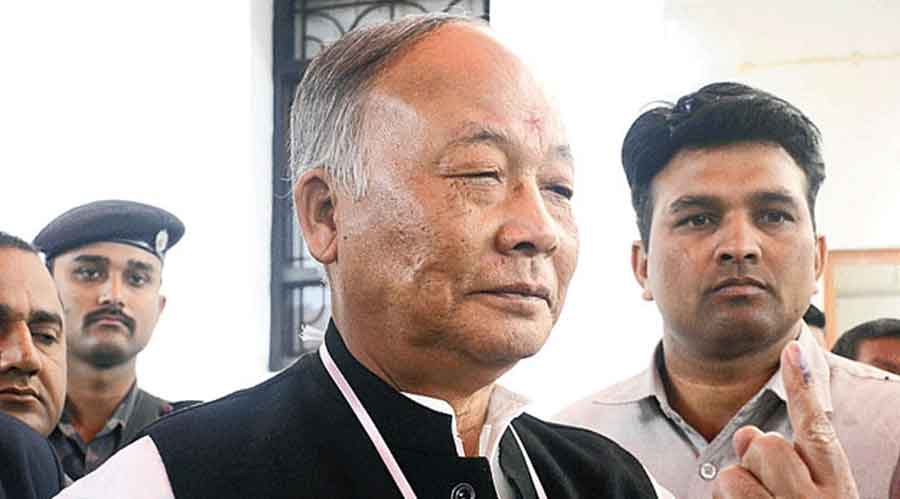Activist Irom Chanu Sharmila, once the face of the anti-AFSPA brigade, was a high-profile candidate in the 2017 Manipur Assembly elections, having taken on three-time chief minister Okram Ibobi Singh of the Congress in his stronghold Thoubal, 23km from capital Imphal.
The 49-year-old activist got only 90 votes to Ibobi’s 18,649, ending her fledgling political career. About eight months earlier, she ended her 16-year hunger strike, the world’s longest, to get the AFSPA repealed. She left Manipur after the election debacle in 2017 to get married and now lives with her husband and twins in Bangalore. She has not been home since.
Sharmila’s story of sacrifice, fortitude and forbearance invariably comes up every time the Armed Forces (Special Powers) Act, 1958, imposed in Manipur in 1980, is discussed.
But a lot has changed since 2017: the anti-AFSPA camp is without its most prominent crusader in Sharmila while Ibobi Singh is no longer chief minister. There are a few constants as well — the AFSPA is still in force and is a poll issue.
The AFSPA gives armed forces unbridled powers to search, arrest and shoot in areas designated as disturbed.
The central law is in the news in poll-bound Manipur because major political parties such as the Congress, National People’s Party, Naga People’s Front and the Janata Dal United, want it scrapped. However, the ruling BJP’s manifesto was silent on the issue on “grounds” of national security.
Responses to queries about whether the AFSPA will be a factor in the February 28 and March 5 polls or impact the eventual outcome when the results are announced on March 10 are mostly in the negative.
The reasons are varied.
Some say the common man is satisfied with the overall peace and stability, a key poll plank of the BJP.
A few say people are more concerned about survival at a time the economy has been battered by the pandemic. Still others say the issue lost its sting in Manipur since Sharmila ended her fast on August 9, 2016. There has not been a sustained protest since.
Reports from the hill districts indicate that the matter has got some traction there.
However, there is near-unanimity across sections that the act should go.
Among those who feel the Act will not have an impact on the elections is Irom Singhajit, elder brother of Sharmila who had been part of the anti-AFSPA protesters. Today, he is “not associated” with the movement against the law.
“Although everyone wants the AFSPA to go, it is unlikely to have an impact on the polls, mainly because people have got used to it and they are more bothered about survival in these Covid times. It is the civil society organisations that are fighting because they understand the situation. Everyone should understand that killings and rapes have declined sharply because of the long-drawn-out protest by Sharmila,” Singhajit, 63, tells The Telegraph in Imphal.
He adds: “The government claims that law and order is improving but keeps on extending the AFSPA every year. The AFSPA will stay now and in the future. Instead of repealing the Act, the government will think of ideas to retain it.”
Social scientist Dhanabir Laishram says: “The AFSPA is an issue but I don’t see it affecting the polls because incidents like fake encounters or rapes have minimised. So, people are not affected as they used to be in the past”
Rights activist Babloo Loitongbam tells this newspaper that the AFSPA negates the right to life of the people.
“If the AFSPA is not an issue in the elections, nothing else is. All the political parties except the BJP have mentioned it in their manifestos. And the very fact that the BJP missed it has become a significant issue during the campaign. Now the question is how the grassroots political workers connect the voters with the manifesto promise, to convert it into actual votes,” Loitongbam, 52, says.
Polls today
Altogether 38 of the 60 constituencies will vote on Monday in the first phase.











